Irish resentment towards Israel has been brewing for some while, but reached a peak of sorts this week with the announcement by Irish author Sally Rooney, that, in solidarity with the Palestinian ‘cause’, she was rejecting her Israeli Publishers offer to publish her latest book in Hebrew.
Now the Irish attitude to Israel and Jews in general is a subject I’m something of an expert on, with my mother being Irish-Catholic and my father Jewish. So for much of my life, I had a ringside seat on domestic interaction between the Irish and Jews, if you will. Both my parents were avid supporters of Israel, as it turns out, but my mother carried this flame even long after my father’s early death. She was among a cheering audience watching ‘Fiddler on the Roof’ when its star Topol announced he was off to fight in the 1967 war, visited Israel for a second time only weeks after the war was over, and had a framed photo of Moishe Dayan on her bedroom wall.
A number of Irish would now no doubt claim that my mother was an exception, but that would be far from the truth. Indeed, the Irish anti-Israel, pro-Palestinian stance stems from the fact that they see in that conflict a reflection of their own struggle against British rule. But in fact the struggles of early Jews/Zionists were also against the British to finally form Israel, which is why at that stage the Irish were fully supportive of Israel. Their struggle stood on all fours with the Israeli struggle.
Even after the 1948 war and the formation of Israel, Irish support remained strong. In their view, British Imperialism/Colonialism had merely been replaced with pan-Arab Colonialism, with a small, beleaguered nation, Israel, formed from a rag-tag bunch of refugees, surrounded by much larger, powerful nations – Egypt, Jordan, Syria, Iraq, Lebanon – all vying for its destruction. So what changed?
The first part of that shift in fact came with the 1967 war; lasting only six days, it seemed that Israel was not as weak and defenceless as first thought. But the main part came with the shift from pan-Arabism – in the wake of peace deals signed with Egypt and Jordan – with the Palestinians then viewed as a separate, more isolated people. Propaganda with the rise of Yasser Arafat’s PLO added impetus, who indeed likened his cause to that of the IRA.
Although with the way that the Palestinian ‘cause’ was pursued through this period, with massacring Olympic athletes, plane hi-jackings, and blowing apart women and children in cafes and on buses, still very few Irish supported the Palestinians, perhaps just a 15-20% margin of hardline IRA supporters – the majority of Irish sympathy rested with Israel.
Arafat in fact came out with the proclamation, ‘If we make life insufferable for the Jews, they will leave in droves.’ Hamas too later followed this early Fatah/PLO lead, with a wave of suicide bombings which, at its height, saw as many as three bombings a month.
But these plans backfired. Israel constructed a series of security barriers and increased checkpoints. And it was only at this point that Irish sympathies started to shift towards the Palestinians. The divide was quickly dubbed ‘apartheid’ – even though clearly evident that if its purpose was ‘racial’, it would have been constructed 40 years previous, not in the wake of one of the worst waves of suicide bombings that any nation has suffered. And on the back of this, other demonizing terms quickly followed: occupation, ethnic cleansing, ‘stole’ our land, and finally BDS – Boycotts, Sanctions and Divestment. It’s in fact BDS which Sally Rooney has cited as her main ‘umbrella cause’ for not accepting an Israeli-Hebrew publication of her latest book.
But many of these terms have different origins and connotations, as well as their own inherent flaws – so are worth addressing separately:
Apartheid
The main acid test here is that Israel has an Arab population of 1.74 million, 21% of its population, the majority of which are Muslim. How many Jews in Palestinian territory? In Gaza, it’s a big fat zero, and any that have misguidedly gone into Gazan territory have been kidnapped or killed. In the West Bank there are 355,000 Jews, dubbed ‘settlers’, and made patently clear they are unwelcome. If a Jew should unforeseen get lost in an Arab area, they risk being stoned or killed. Yet Arabs in the West Bank wander freely into Jewish areas with no fears or repercussions.
It is claimed that Arab-Israelis cannot buy land in Israel, but this is also a skewing of the truth. The fact is, no land is available for outright sale in Israel, all of it is on 100 year leases, available equally to Jews and Arabs. However, if an Arab Palestinian should sell land to a Jew, they face the death-penalty under Fatah’s PA or Hamas. So it becomes clear from this that ‘apartheid’ runs far stronger from Palestinians towards Jews, and is all but non-existent the other way.
But the need for stringent security in order to protect the lives of the 355,000 settlers in the West Bank – a fifth of the number of Arabs in Israel – does lead to the next oft-touted term:
Occupation
As stated, this is primarily to offer protection to the 355,000 settlers in the West Bank, rather than control the general population. Indeed, 83% of the Palestinian population fall under the control of Fatah’s PA, with little or no involvement of Israeli security forces at all. These are only in fact at checkpoints for security.
A point worthy of note is that between 1967 and 1995, there were hardly any barriers and checkpoints. Gaza residents could travel freely into Israel, as could West Bank Palestinians, and vice-versa, with Jews regularly visiting Gaza markets to buy fish and farm produce. This all changed with the waves of suicide bombings to rid the area of all Jews but, as said, this backfired.
So even if at best it could be termed a ‘lukewarm occupation’, it certainly is a self-inflicted one. Without the waves of terrorist attacks and bombings, hardly a single soldier or barrier would exist in the West Bank or Gaza – as indeed was the case between 1967-1995.
Ethnic cleansing
This term has gained traction within the last 20 years, even though the war in which it is claimed this took place was over 70 years ago. No Arab/Palestinians were removed in the 1967 war, even though the Arab armies made clear it was their intention to ‘remove all Jews from the area’, as indeed was their siren call in the 1948 war, and remains very much in place now. Hamas regularly call for a Palestinian State stretching from the ‘river to the sea’ free of all Jews, and even the more moderate Fatah have proclaimed that when the Palestinian borders are finally drawn in a two-state solution, all Jews (settlers) should be the other side of it. Quite an ironic stance for an organization regularly throwing the ‘apartheid’ slur at Israel.
Indeed, even going back to the 1948 war, there was never the intention to ethnically cleanse Arabs from the area. Paradoxically, the main call for this to make way for a Jewish State came from no less than the British Labour Party at the time – who today, particularly during the Corbyn era, loudly trumpet Palestinian ‘ethnic cleansing’. But Ben Gurion at the time resisted this call. In a speech in 1947 to the UN, he proclaimed, ‘There was such a view held by the Labour Party, adopted only two years ago by the British Labour Party, just before the election, that in order to make more room for Jews the Arabs should be encouraged to transfer to other countries. We did not accept it even then; we did not approve of it. We do not claim that any Arab ought to be removed. Therefore, we have no conflict, as far as we are concerned, with the Arabs. They deny our right to be in our home. If you call this a conflict, then there is a conflict, but it is not a conflict on our side.’
So what happened in the final war in 1948? The Israeli side claim that all or most of the Arab population were ordered by Arab leaders to shift from the area with the imminent war, ‘We will make quick work of defeating the Jews and clearing them all from the area, and you can return to your homes.’ The Arab side claim that the Arab population were forcibly removed by the incoming Israeli troops. So which side is telling the truth? As with many extreme claims by opposing sides, the truth lies somewhere in the middle. Many Arabs did in fact flee the area with the advancing war, either ordered or of their own volition (as with many civil wars). But the remainder did in a number of cases cause a problem for advancing Israeli troops. If those troops left a contingent of Arabs in place, they often found themselves shot at from behind their lines, which then became impossible to secure; the only option was to clear the belligerents/attackers from the area.
At the end of the war, Israel was then faced with a dilemma. Did they invite back that largely belligerent population, many of whom had been intent on attacking and killing them and might still be intent on doing so? It’s very much the same decision the UK has faced in allowing ISIS affiliates to return, many of whom were originally British citizens.
‘Stole’ our land.
Another largely inaccurate claim. A document and chart has been doing the rounds the past decade or so which shows, ‘Jewish owned land 7%, Palestinian and ‘other’ 93%.
The ‘other’ is where the inaccuracy/lie derives. Directly owned land was minimal in 1947, the majority was owned by the State (Ottoman Empire then British) and either leased to the populous at a peppercorn rent (Miri), or for public areas, roads, municipal areas, parks, or simply desert areas where there was no land ownership. This State-owned portion comprised 72% of the whole, and the Palestinian portion was in fact 11%, the rest taken up with foreign ownership – Ottoman-Turks, Lebanese, Syrian, Greek, religious trusts. How it would be if the Israelis produced a document: ‘Palestinian ownership 11%, Jews and ‘others’ 89%.’ You can see the dishonesty.
The majority of land ownership therefore resided with the controlling State, which shifted from Ottoman Turk to British, then finally to Israel and Palestine (the latter at this stage under the control of the PA rather than a formal state). But in 1950, an official ‘absentee property board’ was set up in Israel, whereby any Palestinians holding deeds in territory that was now Israel would be duly compensated at that day’s market price. That board still exists today, with the compensation that an equivalent property should be found and granted, and where it cannot be, the cash compensation should be today’s market price plus 20%.
Conversely, no such compensation board has ever been formed in the various Arab countries in which over a million Jews (400,000 more than the number of claimed Palestinian refugees) found themselves forced to flee during this same period and lost their properties and possessions.
BDS – Boycotts, Sanctions and Divestment
Formed in 2006, but gaining its main traction over the past decade, BDS aims to restrict Jewish companies operating in the West Bank, which it claims is ‘occupied territory’. The chosen initiative for Sally Rooney to reject an Israeli Publisher, it’s unpopular with the majority of Jews, not just in Israel but beyond, because it mirrors the first moves of Nazis against the Jewish population in Germany – restricting them from certain trade enterprises.
It’s also highly unpopular amongst many Palestinians, although the PA hierarchy creating these ‘causes’ have never troubled to poll the general Palestinian populous. The main reason is that anything from 50-70% of employees within these companies are Palestinian (including many within management), and at wages anything from 50-80% higher than in neighbouring West Bank Palestinian companies. Even with highly controversial settlement building, 70-80% of the labour employed is Palestinian, and again at 50-80% above local building rates – so of course they see even this as something of a local economy boom. But they keep this quiet from the PA hierarchy, less they be charged with ‘normalization’ – a strange term within itself, because surely Israeli Jews and Palestinian Arabs working together could be the first paths towards peace.
Finally, petitioning that no Jews should operate companies in Palestinian territory is in itself an ‘apartheid’ policy – which its creators say they are against. They can’t have it both ways.
Having laid out a case of why I think the claims and edicts against Israel are inaccurate, errant or misguided – I should at this stage take a step back and say that I by no means agree with a number of Israeli policies and feel at times they are OTT and heavy-handed. Though at the same time, I also appreciate why they lean towards being ultra-defensive. Understandable, I suppose, for a people who have seen a third of their population massacred – with still now nations like Iran (with Hamas, Hezbollah and Islamic Jihad riding shotgun) calling for their destruction.
‘Why don’t they just leave the West Bank and all Palestinian territory?’ Israel’s dissenters no doubt ask. ‘Then all claims of ‘occupation’, apartheid and associated BDS would evaporate.’ There are some within Israeli society who ask the very same. But there is herein something of a ‘blind spot’ for a number of Jews, which dates back to the early days of Zionism. In Balfour’s original declaration, the whole area was designated as a ‘Home for Jews’ – not that they should rule it, but that they should be able to settle freely without hindrance in any part of it.
The other problem is that many of these West Bank areas originally formed the Jewish homelands of Judea and Samaria. So even after the final separation a number Jews asked why they should vacate those areas? Especially when a 21% contingent of Arabs remained the Israeli side. To ask/demand that a 21% contingent of Arabs remained the Israeli side, but 0% Jews remained the other side – especially when large parts of it were their historic homeland – seemed unreasonable.
This is particularly evident in somewhere like Hebron, the site of Abraham and Sarah’s Tomb, where a Jewish population has resided since Biblical times. Small at the time of the early days of Zionism, this had built to over 500 by 1929 - when a massacre of 67 Jews by Arab extremists saw the Jewish population flee in the following years. Returning in the years after the 1967 war, the Jewish population is now 750 – but has led to strict security in 20% of the City, with many barriers and checkpoints. As terrible and inconvenient as this may be, without any perceived threat to the Jewish community there, again these security barriers would not exist.
Even if there was a strong rationale to make the entire West Bank Jew-free, ‘Judenrein’ – and, no, I don’t think the inclination of Palestinian extremists to attack or kill Jews there is a particularly good one – Israelis point to the case-example of Gaza. Vacated and made ‘Jew-free’ in 2005, the area quickly became an Islamic extremist stronghold under Hamas, with almost 30,000 rockets and mortars fired into Israel since. Israel argues that if they vacated the West Bank, a similar situation could be seen there, with the area simply becoming another terrorist group stronghold used as a launch-pad for rocket attacks against Israel – with many Israeli cities within far closer striking distance.
Thankfully, there are still a number of ‘Friends of Israel’ groups within Ireland who perhaps are more appreciative of the conflict’s history and the ‘cause and effect’ of most of the actions there. But it does appear that Sally Rooney and many others in today’s Ireland have simply followed what they see as a popular ‘zeitgeist’, clinging to the coattails of a number of demonizing claims and slogans against Israel, without checking the full facts and history of the conflict. Something which no writer worth their salt should do.
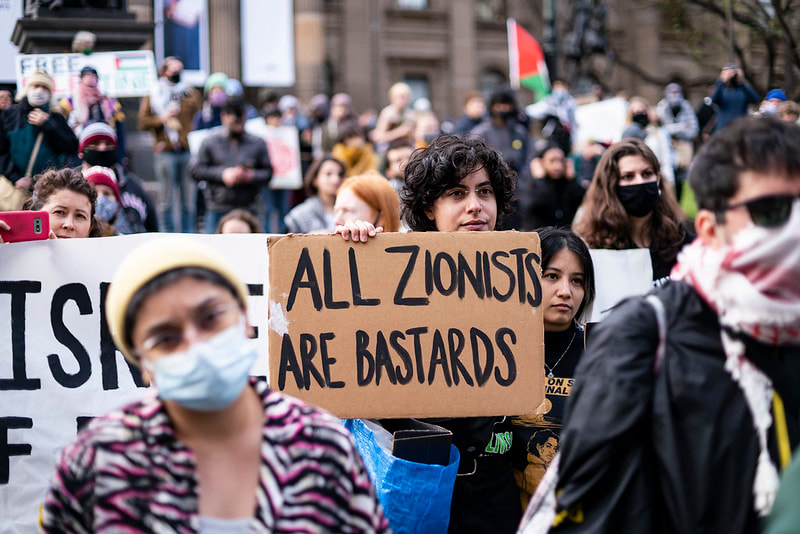

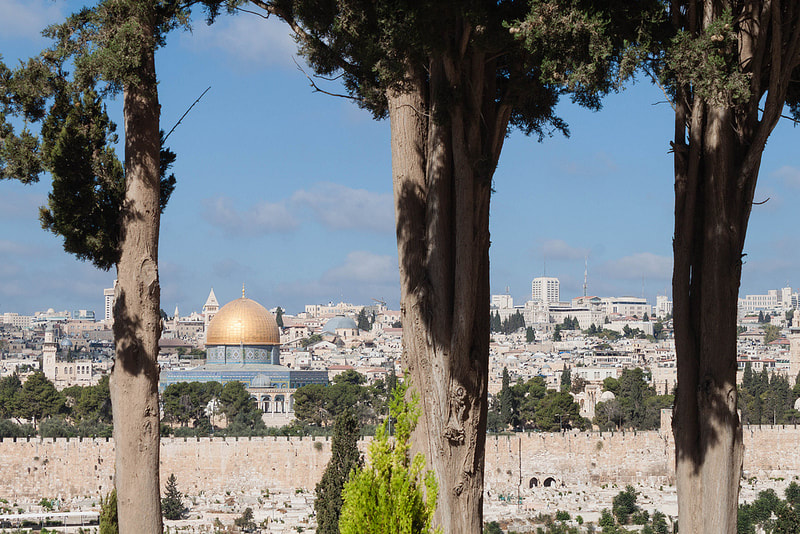
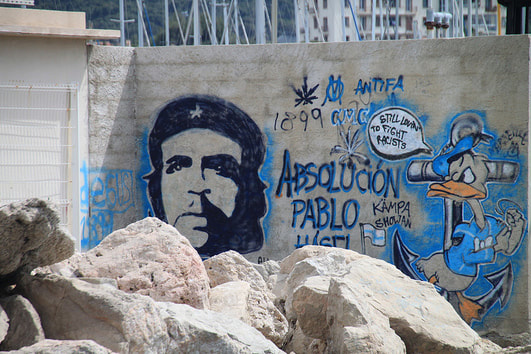
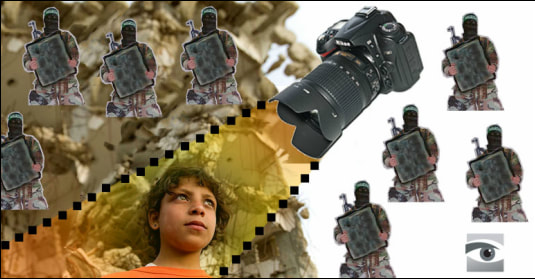

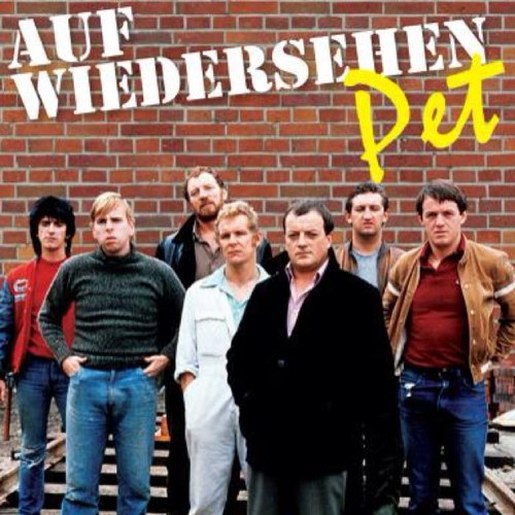
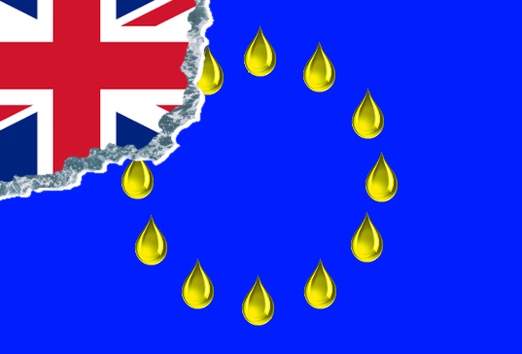
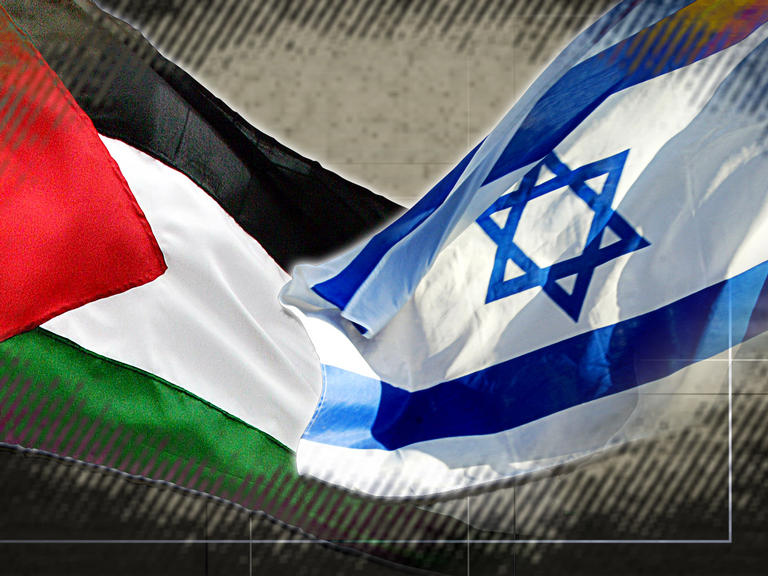
 RSS Feed
RSS Feed